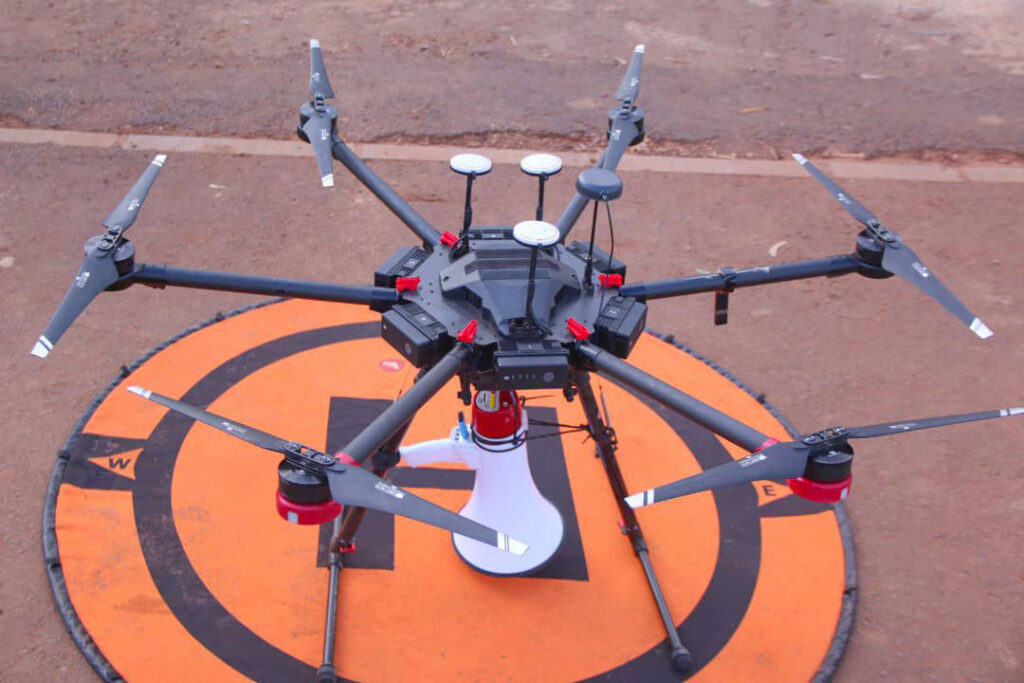ADF STAFF
The Rwanda National Police (RNP) have gone airborne to enforce social distancing and other restrictions aimed at reducing the spread of COVID-19.
The police have launched remote-controlled drones over the capital, Kigali, to remind residents to take precautions to protect themselves from the potentially fatal respiratory disease.
The drone program began after residents started becoming lax on protective measures. It operates in several areas of the country, including Rusizi in Western Province.
“RNP leadership considers drones as a powerful tool which supports law enforcement in conducting sensitization as well as various public safety related operations, which include border control, environmental protection, response to disasters, public order management and support for investigations, among others,” RNP spokesman John Bosco Kabera told ADF.
The drones act as a force multiplier for the police, Kabera said, sometimes covering areas on their own and other times traveling as a complement to ground-based forces. RNP officers operate the drones, which come with high-definition cameras and broadcast capabilities. Some drones also carry message boards.
By taking to the air, drones let police reach areas, such as crowded marketplaces, that may not be easily accessible to vehicles or on foot. They also improve the visibility of law enforcement while delivering important safety information to the population, Kabera said.
As of September 22, Rwanda had reported 4,738 cases of COVID-19 and 27 deaths from the disease, according to the Africa Centres for Disease Control and Prevention. With 37 COVID-19 cases per 100,000 people, Rwanda has an infection rate higher than neighboring countries, but lower than many other countries on the continent.
Rwanda is not the only African nation to use drones to enforce public health mandates related to COVID-19. Morocco has used drones, as have Ghana, South Africa and Tunisia. In some cases, drones have dispersed disinfectant across public spaces. In others, they monitor public spaces for violators and deliver visual and audio messages about the virus.
Outside Kigali, Rwanda also has worked since 2016 with U.S. drone maker Zipline to operate a collection of airplane-like drones to deliver blood packs and other lightweight medical products to distant parts of the countryside.
Low-cost drones are ideal for delivering COVID-19 messages and meeting other needs, especially in rural areas, according to Sam Twala, president of the South African Federation of Unmanned Aircraft Systems. The federation formed in 2019 to work with the South African government to define rules for operating drones.
“In Africa, that’s where drones [are] going to find better use to even other areas in the world, or other countries in the world, simply because of the particular challenges we have,” Twala told Voice of America in April. “And when it comes to things like your cost, that’s actually where drones add much more value, because drones offer that advantage where you can tactically place your people.”
Kabera said Rwandans have reacted well to the airborne messengers.
“Citizens have always positively responded to messages delivered by drones,” he said. “Normally, citizens do comply. However, drone operations work hand in hand with motorized and foot patrols with officers ready to enforce in case some members of the community fail to adhere to the directives.”

